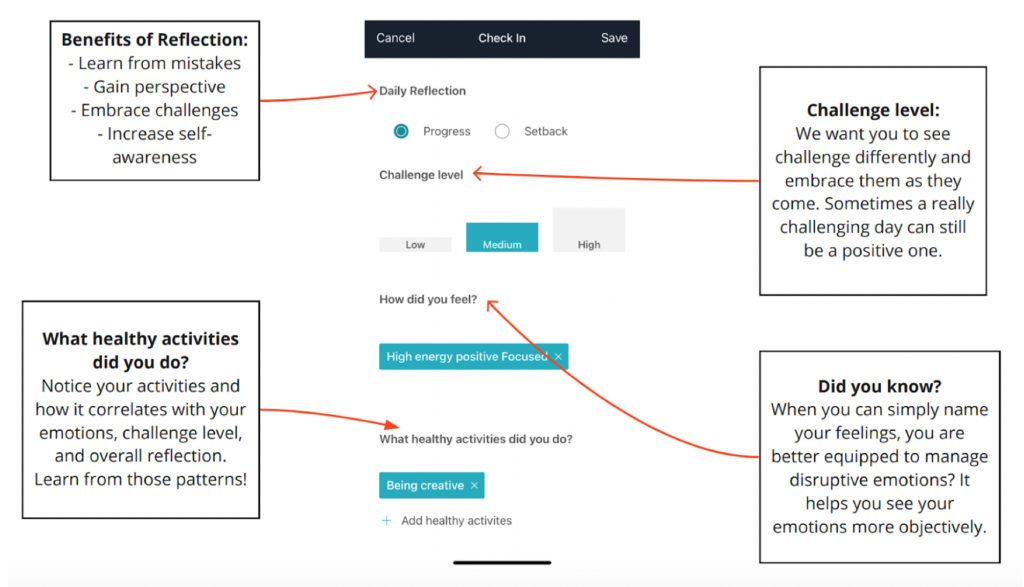By Janae McKendry
There are super exciting changes happening on the rTribe platform!
We are shifting to a transformational coaching-focused model with Four Streams Coaching (4SC).
We can’t tell you how thrilled we are for this transition as we will be queued up to serve even more people through strategic partnerships and business-to-business relationships. Our core mission will always remain the same –believing in the dignity of every human being. This conviction inspires us to help people realize their fullest potential by partnering with them to reveal what makes them extraordinary in this transformational coaching model.
First, we want to provide you with some details behind ourtheory of change.
For several decades, the primary mental health approach has been something known as the “disease model” which focuses on what’s wrong with people. Consequently, this traditional approach to mental health assumes that fixing what is wrong with a person will automatically make them happier.
Research shows that just because a person isn’t struggling with mental illness, it doesn’t imply that they are mentally healthy and vice versa. These findings are supported by the World Health Organization’s (WHO) definition of mental health: “Mental health is a state of well-being in which an individual realizes his or her own abilities, can cope with the normal stresses of life, can work productively and is able to make a contribution to his or her community.” The WHO also goes on to say that “health is a state of complete physical, mental, and social well-being and not merely the absence of disease or infirmity.”
Psychologist Peter Kinderman describes the need to abandon this model, that more or less tends to help miserable people be less miserable:
“The idea that our more distressing emotions such as grief and anger can best be understood as symptoms of physical illnesses is pervasive and seductive. But in my view, it is also a myth, and a harmful one. Our present approach to helping vulnerable people in acute emotional distress is severely hampered by old-fashioned, inhumane, and fundamentally unscientific ideas about the nature and origins of mental health problems. We need wholesale and radical change, not only in how we understand mental health problems, but also in how we design and commission mental health services.”
Because of this narrow view on mental health, Four Streams’ philosophy is rooted in the science of flourishing, or positive psychology, which is the study of what makes life worth living as well as focusing on individual and cultural well-being.
“Positive psychology is a scientific approach to studying human thoughts, feelings, and behavior, with a focus on strengths instead of weaknesses, building the good in life instead of repairing the bad, and taking the lives of average people up to “great” instead of focusing solely on moving those who are struggling up to “normal.” – Christopher Peterson
Positive psychology, one of our four streams, is at the core of what we do. Our coaches come alongside to help you instill sustainable and growth-orientated change that is rooted in science.
Our improved platform features support this health model to encourage your growth. For example, when you check-in, you will be prompted to reflect on your day by selecting whether it was a day of progress or a setback, the challenge level, your energy level, emotion, your healthy activities, and a journal prompt.
Each of these aspects was created with the health model in mind. When you reflect on your day, you are more likely to learn from your mistakes, embrace challenges, celebrate wins, and gain better perspectives.
We also know how important your emotional intelligence (EQ) is, which is the ability to understand and manage your emotions as well as the emotions of others. People with higher levels of EQ are more successful, have better relationships, and are more likely to have an increased sense of well-being compared to those who don’t. What’s encouraging about EQ is that with consistent effort, you can improve it! This is why we first ask you to identify your energy level to help narrow your emotion selection. When you practice naming how you feel, you are much more capable of managing your emotions when they are disruptive. This increases your self-awareness and self-regulation, which are key components of emotional intelligence.

Mindset is another important component in our transformational approach. Researcher Carol Dweck coined the two terms: fixed mindset and growth mindset. These terms describe the underlying beliefs a person has about his or her intelligence and abilities. A person with a fixed mindset believes their qualities and abilities are fixed, set in stone, or unchangeable. On the other hand, a person with a growth mindset believes their qualities and abilities can be developed and improved. The growth mindset thrives on challenges, persists in the face of setbacks, and learns from mistakes.
As you reflect on each day in the robust check-in feature, we want you to consider a setback day as an opportunity to persist and make tomorrow better. We urge you to shift your perspective of a challenging day as a day that pushed you. When you make mistakes, we want you to see that as a necessary part of the growth process.
Ray Dalio, the founder of Bridgewater and author of 2017 bestseller: Principles: Life and Work, lives by the philosophy: “pain + reflection = progress.” His work inspires us to overcome the fear of failure in order to see it as an important and necessary aspect of obtaining our goals and mastering life. We do not see failure as a bad thing, but as an opportunity for growth and learning.
If we can shift our thinking, and invite failures as an exciting part of the journey, we can enter into Mark Rober’s world of “Life-Gameification”. Rober says that “by reframing the learning process and focusing on the cool end-goal, the fear of failure is often taken off the table and learning just comes more naturally.” He calls this “The Super Mario Effect” where we can focus on the fun and excitement of a challenge to stick with the task and learn more along the way.
Ultimately, the story behind the transition from rTribe to the 4S Coaching App is a collective and holistic way to not only make people feel less unhappy, but to help them find the path to sustainable true happiness and flourishing.
View more 4S blogs
